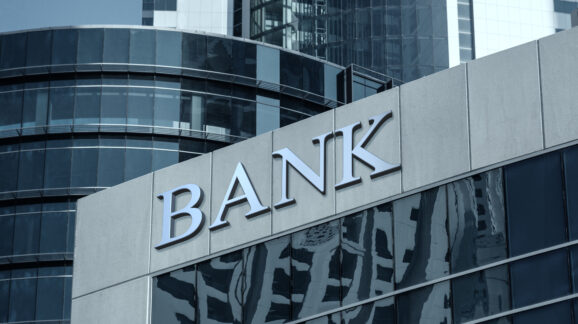Trump EO on debanking is a mixed bag for financial freedom

Photo Credit: Getty
President Trump’s new Executive Order (EO) on debanking correctly decries the weaponization of the financial regulation, and contains many good provisions preventing government regulators from pressuring banks and credit unions to deny services to business sectors and individuals. Unfortunately, it also contains provisions encouraging “fair access” mandates on private banks and credit unions – regardless of size – that would lead to further weaponization.
The EO – entitled “Guaranteeing Fair Banking For All Americans” – states correctly that “bank regulators have used supervisory scrutiny and other influence over regulated banks to direct or otherwise encourage politicized or unlawful debanking activities.” It points to the Obama administration’s Operation Choke Point, in which various financial regulatory agencies jawboned banks into denying financial services to various business sectors.
CEI scholars including Iain Murray and I have exposed and decried Choke Point since the program was revealed, as we have for the Biden administration’s Choke Point 2.0 in which financial regulators targeted the cryptocurrency industry based on “reputational risk.” Last December, CEI held a Financial Weaponization Summit in which scholars and members of Congress discussed various ways to bring regulatory agencies involved in the weaponization to heel – from stopping government mandates of “suspicious activity reports” that force banks to spy on customers to forcing regulators to refrain from using “reputational risk” as a safety-and soundness criteria in bank examinations.
On “reputational risk,” the Trump EO is spot on, incorporating recommendations CEI scholars and others have made to restrict regulators wielding this amorphous categorization as a financial weapon. It directs federal financial regulatory agencies to – within 180 days of the EO – “remove the use of reputation risk or equivalent concepts that could result in politicized or unlawful debanking, as well as any other considerations that could be used to engage in such debanking, from their guidance documents, manuals, and other materials (other than existing regulations or other materials requiring notice-and-comment rulemaking) used to regulate or examine financial institutions over which they have jurisdiction.”
Unfortunately, the EO veers off-track in stating that it is an “unacceptable practice” for banks and credit unions to ever “restrict law-abiding individuals’ and businesses’ access to financial services on the basis of political or religious beliefs or lawful business activities.” Banks and credit unions – including the many small financial institutions that dot the US landscape – are private organizations just like other businesses. As such, they deserve some autonomy to choose the customers they wish to have and specialize in providing financial services to different types of businesses.
As I noted in National Review, conservatives and libertarians “have argued that the government should not coerce bakers, florists, or photographers to provide services for weddings that violate their moral and religious beliefs.” Yet “fair access” banking mandates that this EO seems to encourage – with no apparent exemptions based on size of the financial institution – would force banks and credit unions to “bake the cake” even if shareholders or credit union member-owners vehemently disagreed with the activity they would be financing.
As I pointed out in NR, “fair access” mandates could backfire on conservatives, as they could force banks to lend to organizations they oppose from Planned Parenthood to socialist web sites. Even if banks cite valid business reason for denying a loan to these groups, the mandates “would create a mound of red tape for banks regardless of their rationale for rejecting certain loans,” as banks and credit unions may have to spend costly amounts of money and manpower in proving the loan wasn’t denied for ideological reasons. A new form of jawboning could begin as pressure groups – of the left and right – could wield agency complaints and litigation enabled be fair access mandates to pressure banks for loans.
It’s also important to note that many banks and credit unions specialize in servicing certain business sectors. Some even feature the business sector – say, “Farmers” – in the bank’s name. “Fair access” mandates may add new red tape in which these banks and credit unions are forced to justify this specialization, as well as lead these institutions to take risky bets on industries with which they lack familiarity, threatening safety and soundness.
Rather than mandate “fair access,” the most important step for an inclusive and vibrant financial system is to get rid of overall red tape on the financial sector, particularly regulatory barriers that prevent new – or “de novo” – banks and credit unions from forming. Under the Trump administration, many federal financial regulatory agencies have taken important steps in that direction. Removing regulatory barriers to new bank formation and preventing regulators from wielding “reputational risk” are the best ways to deweaponize the financial system.